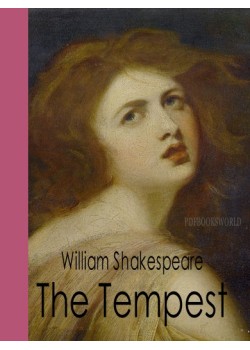
The treatment of affect in the play is accordingly much more complex than in either Midsummer or The Duchess. Yet unlike Midsummer, Prospero’s spirit magic can never directly affect the will of its victims, preserving a domain of voluntarism for the subject. Tthe play backs off from the affectively and epistemically isolated “buffered selves” of the skeptical Neostoics in The Duchess Ariel and his cohort replace lunar influence with the material influence of the air, which is able to directly affect the humours and passions, for example in Ferdinand’s musical calming after his shipwreck. The contracting subjects in the play are not the theoretical independently consenting equals of liberal contract theory for one, they may be coerced, or subtly materially influenced. Given the topicality in 1611 of King James’ recent failure to reach a settlement with Parliament framed as a “great contract,” and Victoria Kahn’s study of the 17th-century development of contractual thinking in informing theories of political obligation (Wayward Contracts), I read the contractualism of the play as a framing cosmological principle spanning covenant theology, marriage, and politics. And unlike the devils of Faustus, Ariel’s relationship with Prospero is modelled on an employment contract which, though stretched, is never broken. Moreover, though Ariel returns to nature at the end of the play, unlike the fairies of Midsummer he spends most of play the carrying out magical, if not miraculous, violations of nature. Yet these spiritual beings are definitively material – Ariel is an “airy spirit” – and are interpreted by different factions at different times as angelic and demonic. Unlike The Duchess, here spiritual beings, Ariel and his cohort, run around on stage. Like The Duchess, however, the Tempest suggests that discernment is not concerned with the substantive distinction between angels and demons. The dramatization of this failure mostly involves the pranks Ariel plays on the Neapolitans and rebels since Ariel is a spirit, this naturally suggests that for The Tempest the discernment of providence centrally involves the discernment of spirits. But, the play argues, these philosophies are powerless to account for a Christian providence. Confronted by an apparently materialist world like that of The Duchess, the play dramatizes attempts to build up politics and ethics from materialist principles, particularly through the resurrected philosophies of Stoicism and Epicureanism. To begin, I show how the assertion and discernment of providential action is central to the play’s discussions of political legitimacy.

THE TEMPEST PDF LICENSE
Politically and theologically, The Tempest’s solutions are predicated on a greater faith in both divine providence and worldly monarchs however this faith is used, at least nominally, to constrain rather than provide unlimited license to the worldly action of kings and deities. This chapter presents The Tempest as a partial solution to The Duchess’s paradoxical mixture of disenchanted physics and Protestant affective spirituality offering no guides in the world of post-Machiavellian politics.


 0 kommentar(er)
0 kommentar(er)
